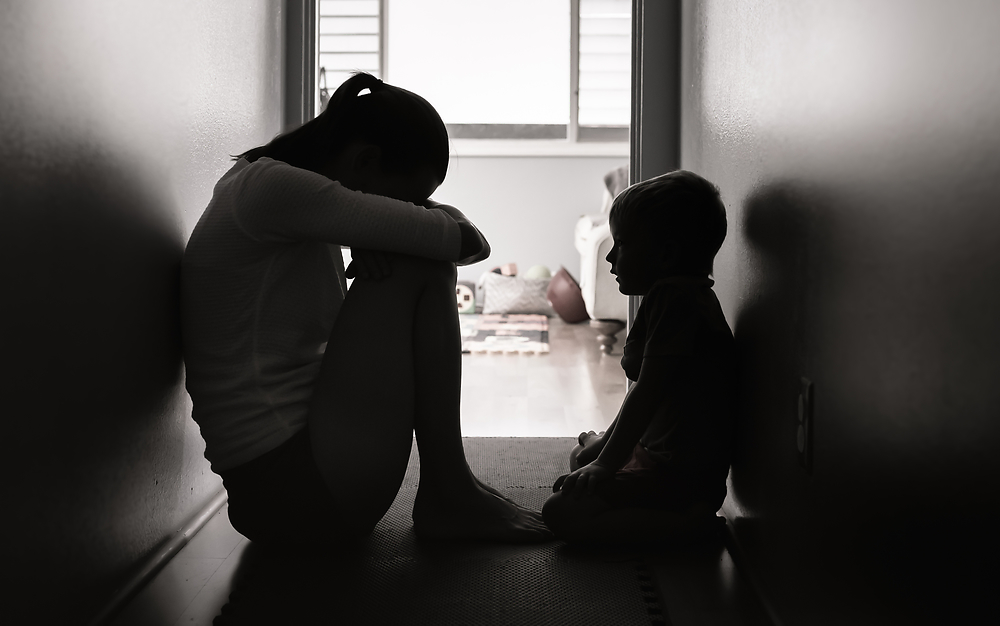What Are the Physical Health Struggles for Solo Parents?
Solo parents like you often struggle with sleep deprivation, lack of exercise, and poor nutrition choices, affecting your well-being. Chronic stress, limited healthcare access, and juggling work and parenting add to the challenges. Combating fatigue, burnout, and feelings of isolation are essential for your health. Seeking support, prioritizing self-care, and making small changes can make a difference. Embracing restorative practices and healthy habits is important. Remember, addressing these physical health struggles is necessary for your overall wellness and ability to care for your family’s needs.
Key Takeaways
- Sleep deprivation impacts physical health.
- Lack of exercise affects mood and well-being.
- Poor nutrition choices lead to low energy levels.
- Chronic stress negatively impacts overall health.
- Limited access to healthcare hinders medical support.
Sleep Deprivation

Prioritizing is crucial for solo parents who may struggle with sleep deprivation due to the demands of managing their household and caring for their children single-handedly.
Focusing on sleep hygiene and self-care is key to effectively combatting these challenges. Establishing a bedtime routine and creating a relaxing sleep environment can help improve your sleep quality.
Seeking parenting support and utilizing coping strategies can also make a significant difference. Don’t hesitate to reach out to friends, family, or support groups for assistance.
Taking breaks when possible and engaging in self-care activities like meditation or reading can rejuvenate you, promoting better sleep patterns.
Lack of Exercise

To combat the challenge of lack of exercise as a solo parent, incorporating physical activity into your daily routine is essential for maintaining your overall health and well-being.
Finding fitness motivation can be tough, but remember that even short bursts of exercise can make a significant difference. Start by incorporating simple exercise routines into your day, such as taking a brisk walk during your lunch break or doing a quick workout at home before or after your kids’ bedtime.
Engaging in physical activity offers numerous benefits beyond just weight management. Exercise can boost your mood, increase your energy levels, and reduce stress and anxiety, all of which are vital for your well-being as a solo parent.
Prioritizing self-care strategies like regular exercise isn’t selfish but necessary for being able to care for your children effectively.
Poor Nutrition Choices

Making healthier food choices is essential for solo parents facing the challenge of poor nutrition, as it directly impacts your energy levels and overall well-being.
When juggling multiple responsibilities, it’s easy to opt for convenient but unhealthy fast food options. However, prioritizing nutritious meals through meal prep can greatly improve your health. By setting aside time to plan and prepare balanced meals in advance, you can guarantee that you and your children have access to wholesome food choices throughout the week.
Incorporating healthy snacks into your daily routine is another vital aspect of maintaining proper nutrition. Snacking on fruits, nuts, or yogurt can help keep your energy levels stable and prevent unhealthy food cravings.
As a solo parent, having quick and nutritious snack options readily available can make a significant impact on your overall health and well-being. Remember, small changes in your diet, such as meal prepping and choosing healthy snacks, can lead to notable improvements in your physical health over time.
Chronic Stress

Amidst the daily challenges of solo parenting, chronic stress can greatly impact your physical health and overall well-being. The constant juggling act of managing household responsibilities, financial strains, and parenting duties can take a toll on your mental health. Chronic stress can lead to a variety of physical health issues such as high blood pressure, weakened immune system, and increased risk of heart disease.
To safeguard your mental health and combat chronic stress, it’s essential to implement effective coping strategies. Prioritizing self-care by setting aside time for relaxation, exercise, and hobbies can help alleviate stress levels. Seeking support from friends, family, or mental health professionals can provide an outlet for expressing your emotions and receiving guidance on managing stress.
Limited Access to Healthcare
Managing the complexities of solo parenting can present challenges when it comes to accessing adequate healthcare services. As a solo parent, limited access to healthcare may be a significant hurdle you face. However, there are options available to help you navigate this obstacle.
Telemedicine options can provide a convenient way for you to consult with healthcare professionals without the need for in-person visits. This can be especially beneficial when juggling parenting responsibilities.
Additionally, community resources may offer support in finding affordable healthcare services tailored to your needs.
Exploring alternative healing methods and self-care techniques can also be valuable. These approaches, such as mindfulness practices or gentle exercises, can help you manage your health and well-being despite potential limitations in accessing traditional healthcare services.
Balancing Work and Parenting

Juggling work and parenting as a solo parent can be incredibly demanding. Managing your time effectively to fulfill both roles while ensuring your well-being can be a real challenge.
The stress of balancing work and parenting responsibilities can take a toll on your overall health and happiness.
Time Management Challenges
Balancing the delicate equilibrium between work responsibilities and parenting duties can present significant time management challenges for solo parents. Juggling the demands of a job and raising children often leads to feelings of being overwhelmed.
The struggle to allocate time efficiently between work commitments and family responsibilities can result in neglecting self-care needs. Solo parents commonly find themselves torn between attending to their children’s needs and meeting work deadlines, leaving little time for personal well-being.
The constant juggling act of managing multiple roles can cause solo parents to prioritize tasks based on urgency rather than importance. This can lead to a cycle of neglecting one’s own physical and mental health in favor of fulfilling immediate obligations.
As a solo parent, it’s important to recognize the significance of setting boundaries, delegating tasks when possible, and carving out time for self-care activities. Implementing effective time management strategies, such as creating a schedule and setting realistic goals, can help in striking a better balance between work and parenting responsibilities.
Stress From Dual Roles
Balancing the demands of both your career and parenting responsibilities can create significant stress for solo parents. Juggling work meetings, deadlines, and your child’s needs often feels like walking a tightrope without a safety net.
This constant back-and-forth between your professional and personal life can take an emotional toll on you, leaving you feeling overwhelmed and drained.
The mental health of solo parents can be particularly affected by the stress of dual roles. Feeling torn between excelling in your job and being present for your child can lead to feelings of guilt and inadequacy. The pressure to perform well in both spheres can cause anxiety and even burnout.
It’s important to recognize the signs of excessive stress and seek support when needed.
Impact on Well-Being
Balancing the demands of both your career and parenting responsibilities can have a significant impact on your overall well-being as a solo parent. The juggling act of managing work commitments and ensuring your child’s needs are met can lead to increased stress levels and potential burnout.
Your mental health is essential in this delicate balance. It’s important to prioritize self-care practices to maintain a healthy mindset and emotional resilience. Taking time for yourself, whether it’s through mindfulness activities, exercise, or hobbies, can help alleviate some of the pressures you face.
Seeking social support and engaging in community involvement can also play a pivotal role in supporting your well-being. Building a network of friends, family, or fellow solo parents can provide you with a sense of camaraderie and understanding. Don’t hesitate to lean on others for assistance when needed.
Fatigue and Burnout

You’re likely feeling drained from juggling work, household responsibilities, and parenting duties all on your own.
The constant multitasking can leave you little time to rest and recharge, leading to overwhelming fatigue.
It’s essential to address this exhaustion to prevent burnout and prioritize your well-being as a solo parent.
Exhaustion From Multitasking
Struggling to juggle multiple responsibilities can lead to overwhelming fatigue and burnout for solo parents. The constant multitasking required to manage household chores, work, childcare, and personal responsibilities can take a toll on your physical health. This exhaustion can also greatly impact your mental health, increasing feelings of stress, anxiety, and overwhelm.
It is essential for solo parents to prioritize self-care to combat the exhaustion from multitasking. Taking short breaks throughout the day, practicing mindfulness or meditation, and setting realistic expectations for yourself can help alleviate some of the strain.
Additionally, seeking support from friends, family, or a therapist can provide an outlet to express your feelings and frustrations, helping you navigate the challenges of solo parenting more effectively.
Lack of Adequate Rest
Fatigue and burnout, stemming from a lack of adequate rest, are common challenges faced by solo parents due to the relentless demands of balancing work, childcare, and personal responsibilities.
As a solo parent, it’s understandable that finding time for yourself can seem impossible, but prioritizing restorative practices and self-care is essential for your well-being.
Implementing good sleep hygiene practices can greatly improve your quality of rest. Create a relaxing bedtime routine, such as reading a book or taking a warm bath, to signal to your body that it’s time to unwind. Avoiding screen time before bed and maintaining a comfortable sleep environment can also help you achieve better sleep.
Incorporating relaxation techniques into your daily routine can help alleviate stress and combat fatigue. Practices like deep breathing exercises, meditation, or gentle yoga can provide moments of calm amidst the chaos of solo parenting.
Isolation and Loneliness

Feeling alone and disconnected from support systems can greatly impact the well-being of solo parents. Isolation and loneliness not only affect mental health but can also manifest physically. Coping with the demands of single parenting while battling feelings of isolation can be overwhelming. It’s important to recognize the significance of mental health in this journey.
Engaging in coping strategies such as mindfulness, seeking therapy, or joining support groups can provide avenues to navigate these feelings.
Community support plays a significant role in combating isolation. Connecting with other solo parents can create a sense of belonging and understanding. Self-care practices, like setting boundaries, prioritizing time for oneself, and seeking help when needed, are essential in managing feelings of loneliness.
Taking small steps to build a support system can make a significant difference in your overall well-being. Remember, you aren’t alone, and reaching out for help is a sign of strength, not weakness.
Financial Strain
Managing financial strain as a solo parent can present significant challenges in meeting the day-to-day needs of your family. The emotional toll of constantly worrying about providing for your children while also managing household expenses can be overwhelming. It’s important to feel stressed, anxious, and even hopeless at times. However, there are coping strategies that can help you navigate through this difficult period.
To address the mental health effects of financial strain, it’s essential to prioritize self-care techniques. Taking time for yourself, even if it’s just a few minutes each day, can make a difference. Engaging in activities that bring you joy, practicing mindfulness or meditation, and seeking support from friends, family, or a therapist can all contribute to your overall well-being.
Frequently Asked Questions
How Can Solo Parents Find Time for Self-Care?
Finding time for self-care can be tough, but with smart time management, you can sneak in moments for relaxation techniques like deep breathing. Consider quick fitness routines and self-care tips to prioritize your well-being.
What Are Some Affordable Healthy Meal Options?
When looking for affordable healthy meal options, consider budget-friendly recipes and quick meal prep ideas. Nutritious snacks and meal planning can help you stay on track with your health goals while saving time and money.
Are There Support Groups for Solo Parents?
Yes, there are support groups for solo parents. You can find online communities for shared experiences, local meetups for face-to-face connections, counseling services for emotional support, and helpline support for immediate assistance. You are not alone.
How Can Solo Parents Manage Their Mental Health?
To manage your mental health as a solo parent, focus on stress management techniques like therapy options. Practice mindfulness and reap the benefits of exercise for your well-being. Prioritize self-care to navigate challenges effectively.
What Resources Are Available for Solo Parents in Need of Assistance?
You can access various resources as a solo parent. Financial assistance programs like grants and subsidies exist to aid you. Childcare options such as daycare centers and afterschool programs can offer support when needed.
Conclusion
To sum up, as a solo parent, it’s important to recognize the physical health struggles you may face and take steps to prioritize your well-being. Remember to make time for rest, exercise, and healthy nutrition choices to combat stress and fatigue.
Seeking support from friends, family, and healthcare professionals can also help you navigate the challenges of balancing work and parenting. Take care of yourself because your health is just as important as caring for your children.

Hey there! 👋 I’m a proud mom and passionate writer, sharing my parenting journey. 📝 Join me as I navigate the ups and downs of motherhood, offering tips, advice, and a sprinkle of humor along the way. 🌟







